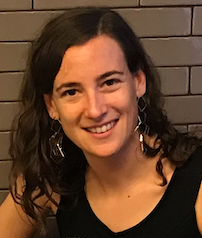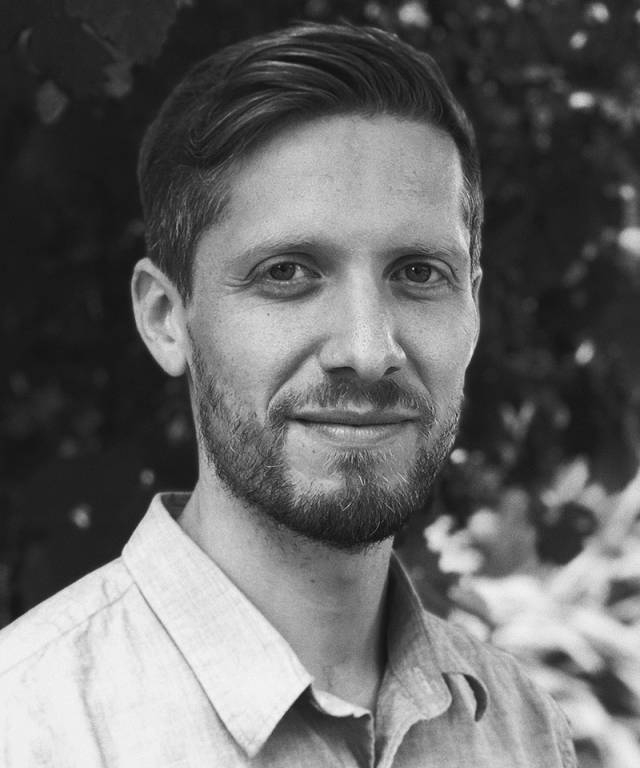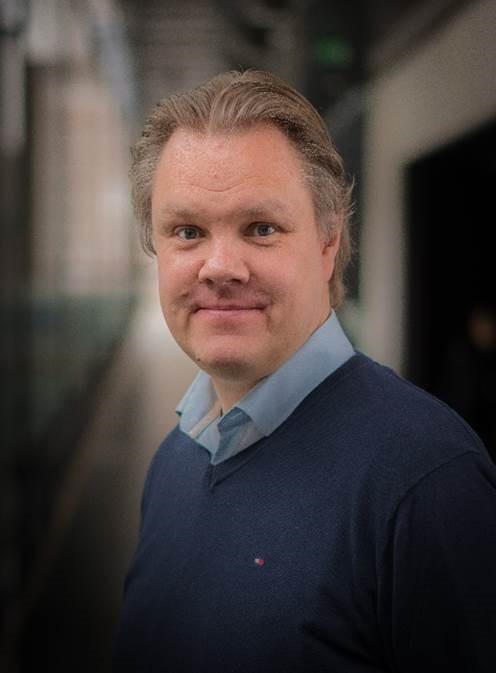Ethical Implications of AI
—Series of Lectures—
Frankfurt Big Data Lab- Goethe University Frankfurt.
Remote: Zoom video call
Started on: April 22 at 2pm (CET Berlin time); Ended on: June 18, 2020
Time: Wednesday and Thursday from 2pm to 4pm Berlin time (CET)
– Open to all interested people. – No fee required.
| Date | Topic | Materials |
| 22.04.2020 | The Ethics of Artificial Intelligence (AI) (Prof. Roberto V. Zicari) | [video] |
| 23.04.2020 | The Ethics of Artificial Intelligence (AI) (Dr. Emmanuel Goffi) | [video] |
| 28.04.2020 | AI Tools Lab | |
| 29.04.2020 | Ethics, Moral Values, Humankind, Technology, AI Examples. (Prof. Rafael A. Calvo) | [video] |
| 30.04.2020 | Ethics, Moral Values, Humankind, Technology, AI Examples. (Dr. Emmanuel Goffi) | [video] |
| 05.05.2020 | AI Tools Lab | |
| 06.05.2020 | On the ethics of algorithmic decision-making in healthcare (Dr. Thomas Grote) | |
| 07.05.2020 | Fairness, Bias and Discrimination in AI (Prof. Gemma Roig) | [video] |
| 12.05.2020 | AI Tools Lab | |
| 13.05.2020 | AI and Trust: Explainability, Transparency (Prof. Dragutin Petkovic) | [video p1] [video p2] [Q&A] |
| 14.05.2020 | AI Privacy, Responsibility, Accountability, Safety and Human-in the loop (Dr. Magnus Westerlund) | [video] |
| 19.05.2020 | AI Tools Lab | |
| 20.05.2020 | Trustworthy AI: A Human-Centred Perspective (Dr. Christopher Burr) | [video] |
| 26.05.2020 | AI Tools Lab | |
| 27.05.2020 | Introduction to Z-inspection. A framework to assess Ethical AI (Prof. Roberto V. Zicari) | [video] |
| 28.05.2020 | Emerging Rules on Artificial Intelligence: Trojan Horses of Ethics in the Realm of Law? (Prof. Florian Möslein) | [video] |
| 02.06.2020 | AI Tools Lab | |
| 03.06.2020 | AI Fairness and AI Explainability software tools (Romeo Kienzler) | [video] |
| 04.06.2020 | Design of Ethics Tools for AI Developers(Dr. Carl-Maria Mörch) | [video] |
| 09.06.2020 | AI Tools Lab | |
| 10.06.2020 | Opinion of the German Data Ethics Commission (Prof. Christiane Wendehorst) | [video] |
| 16.06.2020 | AI Tools Lab | |
| 17.06.2020 | Increasing Trust in AI (Dr. Michael Hind) | [video] |
| 18.06.2020 | Assessing AI use cases. Ethical tensions, Trade offs. (Dr. Estella Hebert) | [video] |
Resources

Instructors

Roberto V. Zicari, Founder Frankfurt Big Data Lab. Course coordinator. Roberto V. Zicari is professor of Database and Information Systems (DBIS) at the Goethe University Frankfurt, Germany. He is an internationally recognized expert in the field of Databases and Big Data. His interests also expand to Ethics and AI, Innovation and Entrepreneurship. He is the founder of the Frankfurt Big Data Lab at the Goethe University Frankfurt, and the editor of the ODBMS.org web portal and of the ODBMS Industry Watch Blog. He was for the past five years a visiting professor with the Center for Entrepreneurship and Technology within the Department of Industrial Engineering and Operations Research at UC Berkeley (USA).

Prof. Dr. Gemma Roig, Group Leader, Computational Vision & Artificial Intelligence, Goethe University FrankfurtI am currently a professor at the Computer Science Department in Goethe University Frankfurt. I am also a research affiliate at MIT. Before I was ass. prof. at Singapore University of Technology and Design. Previously, I was a postdoc fellow at MIT in the Center for Brains Minds and Machines with Prof. Tomaso Poggio. I was also affiliated at the Laboratory for Computational and Statistical Learning. I pursued my doctoral degree in Computer Vision at ETH Zurich. My research focuses on understanding the underlying computational principles of visual intelligence of humans and artificial systems, with the aim of developing a general artificial intelligence framework. Such general artificial intelligence system, is fundamental to design machine models that mimic or surpass human performance in specific domains, and that can automatically learn new tasks.

Dr. Emmanuel R. Goffi, Director, Observatoire éthique & intelligence artificielle | Observatory on Ethics & Artificial Intelligence at the Institut Sapiens, in ParisEmmanuel R. Goffi is an expert in ethics of artificial intelligence. He was the Director of the Creéia – Centre de recherche et expertise en éthique et intelligence artificielle and a Professor of ethics with the ILERI – Institut libre d’étude des relations internationales. He holds a PhD in Political Science from Science Po-CERI. Emmanuel is a research fellow with the Centre for Defence and Security Studies at the University of Manitoba (UofM), in Winnipeg, and a research member with the Centre FrancoPaix at the Université du Québec à Montréal. He is also a member of the Mines Action Canada Board.
Emmanuel has served in the French Air Force for 25 years. He lectured at the French Air Force Academy, and has been lecturing in several universities and colleges in France and in Canada.

Dr. Thomas Grote, Ethics and Philosophy Lab, Cluster of Excellence: “Machine Learning: New Perspectives for Science”, University of Tübingen, Tübingen 72076, GermanyDr. Thomas Grote is a postdoctoral researcher at the Ethics and Philosophy Lab (EPL) of the Cluster of Excellence: Machine Learning: New Perspectives for Science at the University of Tübingen. His research focuses on issues related to machine learning at the intersection of epistemology and ethics.

Prof. Dr. Florian Möslein, Professor of Law at the Philipps-University Marburg, Director of the Institute of the Law and Regulation of Digitalisation (IRDi, www.irdi.institute)Florian Möslein is Director of the Institute for Law and Regulation of Digitalisation (www.irdi.institute) and Professor of Law at the Philipps-University Marburg, where he teaches Contract Law, Company Law and Capital Markets Law. He previously held academic positions at the Universities of Bremen, St. Gallen, and Berlin, and visiting fellowships in Italy (Florence, European University Institute), the US (Stanford and Berkeley), Australia (University of Sydney), Spain (CEU San Pablo, Madrid) and Denmark (Aarhus).Having graduated from the Faculty of Law in Munich, he also holds academic degrees from the University of Paris-Assas (licence en droit) and London (LL.M. in International Business Law). Florian Möslein published three monographs and over 80 articles and book contributions, and has edited seven books.His current research focus is on regulatory theory, corporate sustainability and the legal challenges of the digital age.

Prof. Dragutin Petkovic, Professor, Associate Chair, Undergraduate Advisor, IEEE LIFE Fellow, Director, Computing for Life Sciences (CCLS), Coordinator for Graduate Certificates in AI Ethics and SW EngineeringProf. D. Petkovic obtained his Ph.D. at UC Irvine, in the area of biomedical image processing. He spent over 15 years at IBM Almaden Research Center as a scientist and in various management roles. His contributions ranged from use of computer vision for inspection, to multimedia and content management systems. He is the founder of IBM’s well-known QBIC (query by image content) project, which significantly influenced the content-based retrieval field. Dr. Petkovic received numerous IBM awards for his work and became an IEEE Fellow in 1998 and IEEE LIFE Fellow in 2018 for leadership in content-based retrieval area. Dr. Petkovic also had various technical management roles in Silicon Valley startups. In 2003 Dr. Petkovic joined CS Department as a Chair and also founded SFSU Center for Computing for Life Sciences in 2005. Currently, Dr. Petkovic is the Associate Chair of the SFSU Department of Computer Science and Director of the Center for Computing for Life Sciences. He led the establishment of SFSU Graduate Certificate in AI Ethics, jointly with SFSU Schools of Business and Philosophy. Research and teaching interests of Prof. Petkovic include Machine Learning with emphasis on Explainability and Ethics, teaching methods for Global SW Engineering and engineering teamwork, and the design and development of easy to use systems.

Dr. Christopher Burr is a philosopher of cognitive science and artificial intelligence. He is a Senior Research Associate at the Alan Turing Institute and a Research Associate at the Digital Ethics Lab, University of Oxford.His current research explores philosophical and ethical issues related to data-driven technologies and human-computer interaction, including the opportunities and risks that such technologies have for mental health and well-being. A primary goal of this research is to develop robust and pragmatic guidance to support the governance, responsible innovation, and sustainable use of data-driven technology within a digital society. To support this goal, he has worked with a number of public sector bodies and organisations, including NHSx; the UK Government’s Department for Health and Social Care; Department for Digital, Culture, Media and Sport; Centre for Data Ethics and Innovation; and the Ministry of Justice. He has held previous posts at the University of Bristol, where he explored the ethical and epistemological impact of big data and artificial intelligence as a postdoctoral researcher and also completed his PhD in 2017. Research Interests: Philosophy of Cognitive Science and Artificial Intelligence, Digital Ethics, Bioethics, Decision Theory, Public Policy, and Human-Computer Interaction.

DSc. Magnus Westerlund, Principal Lecturer, Head of Master Degree Programme in Big Data Analytics
Arcada University of Applied Sciences, Helsinki, Finland Magnus Westerlund (DSc) is the programme director of the master degree programme in big data analytics and deputy head of business and analytics department at Arcada University of Applied Sciences in Helsinki, Finland. He has a background from the private sector in telecom and information management and earned his doctoral degree in information systems at Åbo Akademi University, Finland. Magnus has research publications in the fields of analytics, IT-security, cyber regulation, and distributed ledger technology. His current research topics are found in the decentralized platform area of distributed applications, and the application of intelligent and secure autonomous systems. His long-term aim is to help define what we mean by autonomous systems that are trustworthy, accountable, and that can learn from interaction.

Prof. Rafael A. Calvo, Chair in Engineering Design, Faculty of Engineering, Dyson School of Design Engineering, Imperial College LondonRafael A. Calvo, PhD (2000) is Professor at Imperial College London focusing on the design of systems that support wellbeing in areas of mental health, medicine and education, and the ethical challenges raised by new technologies. In 2015 Calvo was appointed a Future Fellow of the Australian Research Council to study the design of wellbeing-supportive technology.
Rafael is the Director for Research at the Dyson School of Design Engineering and co-lead at the Leverhulme Centre for the Future of Intelligence.

Dr. Estella Hebert, Goethe University FrankfurtEstella Hebert is a postdoctoral researcher and lecturer in the department of education at the Goethe University Frankfurt focusing her research on questions of digitalisation within educational contexts. She finished her PhD on the relationship of identity, agency and personal data in 2019. Coming from a media pedagogical and educational philosophical perspective her interests are based in post-digital perspectives on the social, ethical and cultural transformations caused by digitality, questions of datafication and media critical perspectives.

Romeo Kienzler, IBM Center for Open Source Data and AI Technologies, San Francisco, CA, USARomeo Kienzler is Chief Data Scientist at the IBM Center for Open Source Data and AI Technologies (CODAIT) in San Fransisco. He holds an M. Sc. (ETH) in Computer Science with specialisation in Information Systems, Bioinformatics and Applied Statistics from the Swiss Federal Institute of Technology Zurich. He works as Associate Professor for Artificial Intelligence at the Swiss University of Applied Sciences Berne and Adjunct Professor for Information Security at the Swiss University of Applied Sciences Northwestern Switzerland (FHNW). His current research focus is on cloud-scale machine learning and deep learning using open source technologies including TensorFlow, Keras, and the Apache Spark stack. Recently he joined the Linux Foundation AI as lead for the Trusted AI technical workgroup with focus on Deep Learning Adversarial Robustness, Fairness and Explainability. He also contributes to various open source projects. He regularly speaks at international conferences including significant publications in the area of data mining, machine learning and Blockchain technologies. Romeo is lead instructor of the Advance Data Science specialisation on Coursera with courses on Scalable Data Science, Advanced Machine Learning, Signal Processing and Applied AI with DeepLearning.

Carl Mörch, Postdoctoral Fellow, Algora Lab – MILA, OBVIACarl is currently a postdoctoral fellow at the Université de Montréal and Mila. He has been awarded a Postdoctoral Fellowship by the International Observatory on the Societal Impacts of Artificial Intelligence and Digital Technologies (OBVIA). He is also a lecturer and adjunct professor at UQÀM (Montréal, Canada). His research is oriented towards the creation of AI Ethics Tools. His objective is to contribute to the concrete application of high-level ethical principles by developing lists of standards in high-risk areas (Health, Finance). In general, he is interested in the responsible development of technologies in society, health care and psychology. He co-created canadaprotocol.com, an open access tool for AI developers working in Mental Health. He is also working on the ethical evaluation of free mobile applications and on the concept of moral competence in AI. Finally, he is leading “Reach Me” an m-health project to improve pregnant women’s access to prenatal services, using text messaging. He holds a M.Psy. (ICP, France), and a Ph.D. in Psychology (UQÀM, Canada).

Dr. Michael Hind, Distinguished Research Staff Member, IBM Research AI Department, IBM Thomas J Watson Research CenterDr. Hind has authored over 50 publications, served on over 50 program committees, and given several keynotes and invited talks at top universities, conferences, and government settings. Michael has led dozens of researchers to successfully transfer technology to various parts of IBM and helped launch several successful open source projects, such as AI Fairness 360 and AI Explainability 360. His 2000 paper on Adaptive Optimization was recognized as the OOPSLA’00 Most Influential Paper and his work on Jikes RVM was recognized with the SIGPLAN Software Award in 2012. Michael is an ACM Distinguished Scientist, and a member of IBM’s Academy of Technology.

Prof. Christiane Wendehorst, Professor of Civil Law at the University of ViennaChristiane Wendehorst has been Professor of Civil Law at the University of Vienna since 2008. Amongst other functions, she is founding member and President of the European Law Institute (ELI), chair of the Academy Council of the Austrian Academy of Sciences (ÖAW), Co-Head of the Department of Innovation and Digitalisation in Law, and member of the Managing Board of the Austrian Jurists’ Association (ÖJT), the Academia Europea (AE), the International Academy for Comparative Law (IACL), the American Law Institute (ALI) and the Bioethics Committee at the Austrian Federal Chancellery. She has been Co-chair of the German Data Ethics Committee from 2018-2019. Currently, her work is focussed on legal challenges arising from digitalization, and she has worked as an expert on subjects such as digital content, Internet of Things, artificial intelligence and data economy for, inter alia, the European Commission, the European Parliament, the German Federal Government, the ELI and the ALI. Prior to moving to Vienna, she held chairs in in Göttingen (1999-2008) and Greifswald (1998-99) and was Managing Director of the Sino-German Institute of Legal Studies (2000-2008).
In Spring 2022 we will provide the first course on Z-inspection® (Healthcare AI- Basic/ level 1)
More info here.

